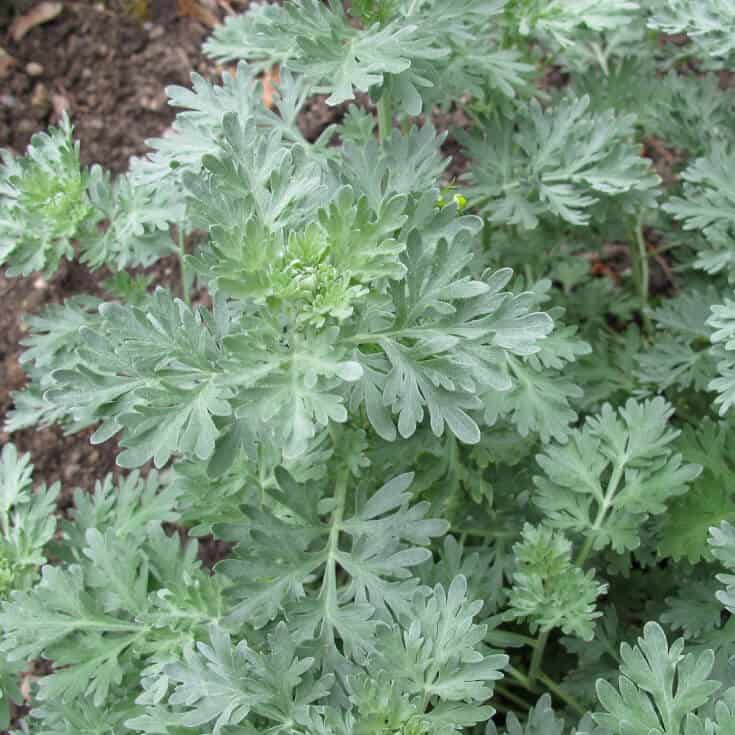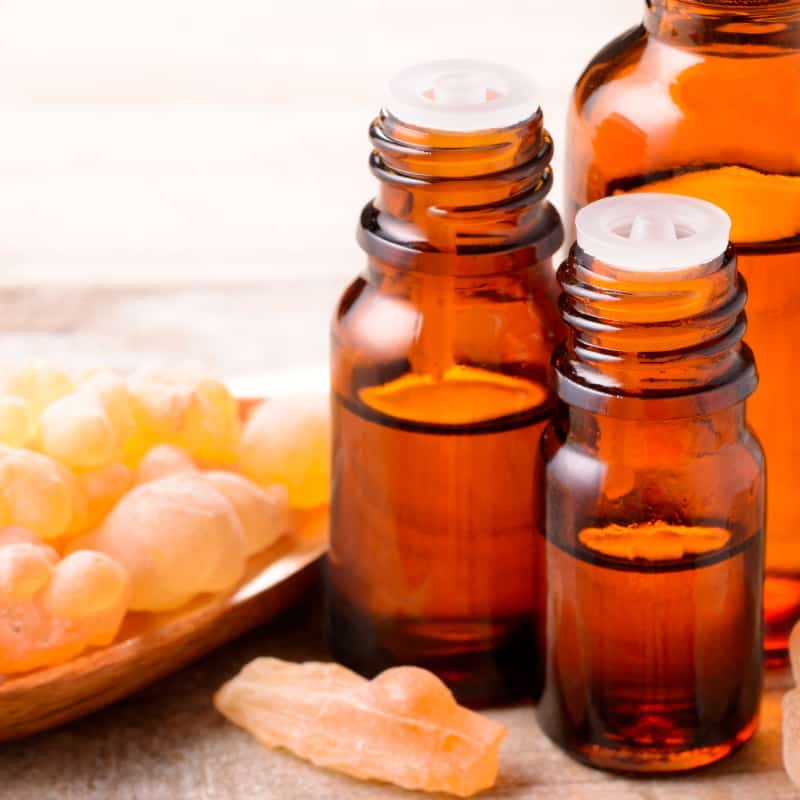This Dr. Axe content is medically reviewed or fact checked to ensure factually accurate information.
With strict editorial sourcing guidelines, we only link to academic research institutions, reputable media sites and, when research is available, medically peer-reviewed studies. Note that the numbers in parentheses (1, 2, etc.) are clickable links to these studies.
The information in our articles is NOT intended to replace a one-on-one relationship with a qualified health care professional and is not intended as medical advice.
This article is based on scientific evidence, written by experts and fact checked by our trained editorial staff. Note that the numbers in parentheses (1, 2, etc.) are clickable links to medically peer-reviewed studies.
Our team includes licensed nutritionists and dietitians, certified health education specialists, as well as certified strength and conditioning specialists, personal trainers and corrective exercise specialists. Our team aims to be not only thorough with its research, but also objective and unbiased.
The information in our articles is NOT intended to replace a one-on-one relationship with a qualified health care professional and is not intended as medical advice.
Pruritus Causes + 5 Natural Treatments for Itchy Skin
November 27, 2017
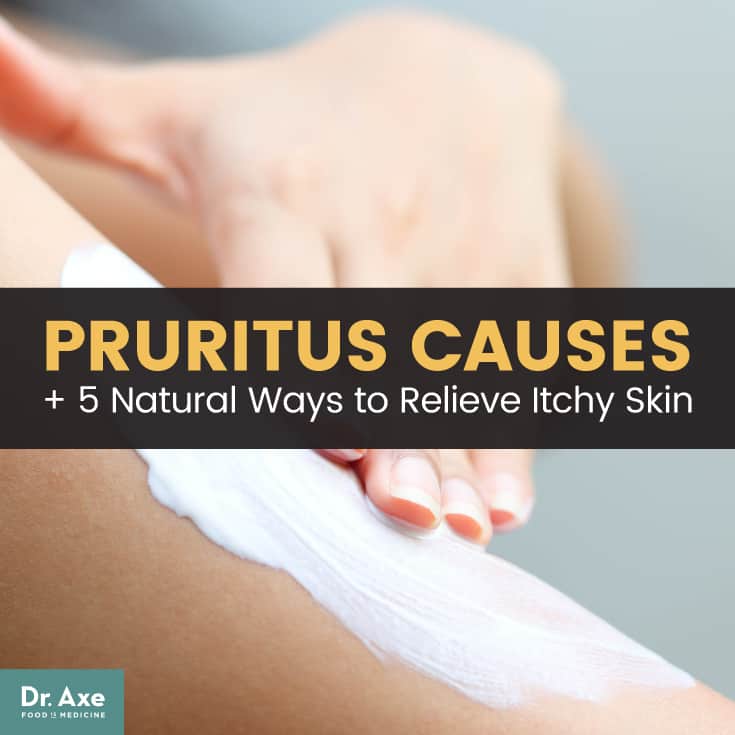
Pruritus, or skin itching, is a common skin problem associated with many different diseases — some of which only affect the skin and others that stem from underlying conditions affecting the whole body. Almost everyone will deal with skin itchiness, dryness and irritation at some point, but what makes pruritus different is its intensity and duration; it can cause intense urges to scratch the skin that sometimes last for many weeks or even months. (1)
Some describe pruritus as feeling like a frustrating, ongoing “itch that cannot be scratched.” Depending on how severe someone’s case is, pruritus can be very uncomfortable, even debilitating. Some people who experience intense itching — along with skin redness, swelling, blistering and edema (water retention) — can also suffer from decreased quality of life due to feeling embarrassed and frustrated by their condition.
Oftentimes pruritus is “idiopathic,” meaning it’s not exactly clear why the itchiness is happening. When someone’s doctor cannot figure out what’s causing their pruritus they will focus on treating their symptoms in order to reduce discomfort. Certain medications might be prescribed, including antihistamines or steroids, in some cases. Natural treatments for pruritus can also be very effective at providing relief from itching, including: colloidal oatmeal baths, essential oils, making dietary changes, and avoiding the use of irritating products.
What Is Pruritus?
Pruritus (pronounced pru·ri·tus) is another name for intense skin itchiness, which is associated with a variety of short-term and long-term health problems. The official medical definition of pruritus is “localized or generalized itching due to irritation of sensory nerve endings.” (2) There are many reasons why someone might experience pruritus, ranging from allergies and viruses like chicken pox, to liver disease and renal failure. (3)
Itchiness associated with pruritus might come and go or be chronic, lasting many months or even longer. One of the most frustrating things about having pruritus? Most of the time when someone with pruritus scratches their skin it will only become itchier and more uncomfortable, which might result in scarring or an infection.
Dermatologists distinguish between two over-arching types of pruritus: pruritus caused by a skin disease (such as allergies, contact dermatitis, eczema or a temporary rash), or pruritus caused by another disease that affects the immune system and/or the whole body (such as a thyroid disease, liver disease or autoimmune disorder).
If someone has pruritus that is NOT caused by a skin disease, then they commonly have normal-looking skin even though it still feels very itchy. They might experience changes in their skin due to scratching, such as scabbing or dryness, but they won’t have other symptoms typically associated with common skin problems like allergies, a rash, bug bites, etc. Once it’s determined that a skin disease is not the cause of pruritus then a doctor will need to do some investigating in order to find out what the patient’s underlying health issue is.
Pruritus Signs & Symptoms
The most common pruritus symptoms include:
- Itchiness, which is sometimes accompanied by noticeable changes in the appearance of the skin, but not always.
- Signs of skin inflammation, including swelling and redness.
- Bumps, spots or blisters forming on the skin.
- Dry, cracked skin (similar to eczema).
- Leathery or scaly texture to the skin.
- Sometimes scabbing, discoloration or long-term damage to your skin due to infection or other complications.
Symptoms of pruritus will differ from person to person depending on the underlying cause.
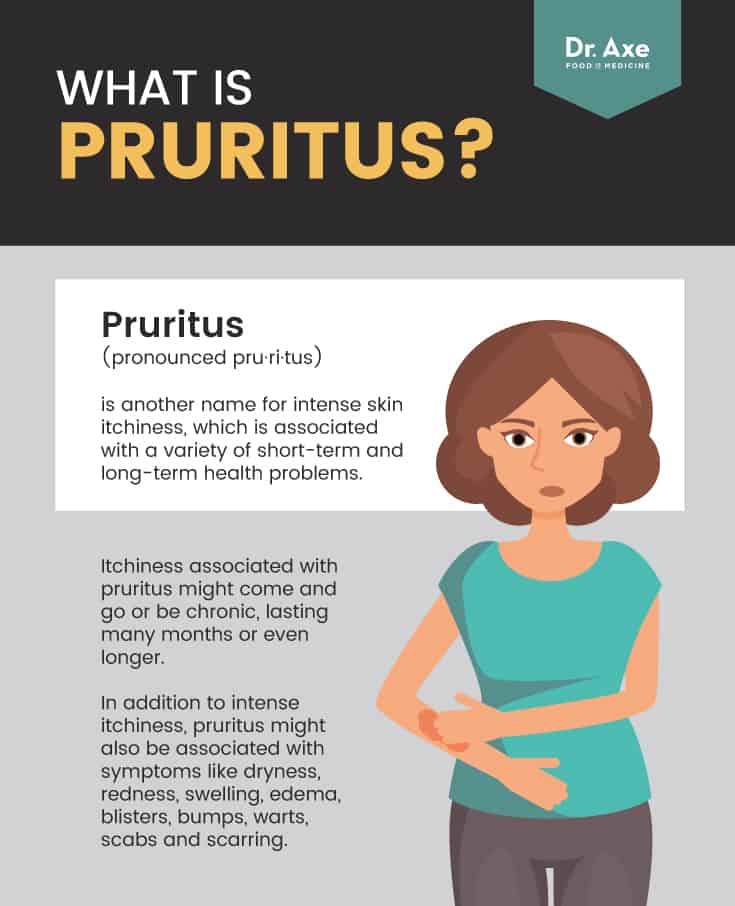
Causes & Risk Factors
Experts believe that pruritus can be due to a combination of dermatological, psychological, and systemic causes. (4) To determine which type of pruritus someone has doctors will look for other signs of disease, infection or irritation — such as swelling, inflammation, hives, tingling, dryness, bites, bumps, etc. The goal is to determine if a temporary skin disease/infection is causing the pruritus, or if it’s due to an underlying health condition.
Research shows that pruritus incidence increases with age (it’s more common among adults and the elderly), is more common in women than in men, and affects people with light or sensitive skin most often, including Caucasians and those of Asian background. (5)
What causes pruritus? A number of conditions, both serious and not, can cause skin itchiness. Some of the most common causes of pruritus include: (6)
- Skin dryness (also called xerosis). Dry skin is a very common problem and can be due to factors like:
- certain weather/climate conditions (such as very cold, dry or windy weather during the winter)
- older age
- use of air conditioning or heating indoors, which reduces moisture in the air
- over-washing the skin or bathing too much
- using chemicals and strong products on the skin
- certain diseases and disorders such as thyroid disease
- Common skin conditions including eczema (atopic dermatitis), rosacea or psoriasis.
- Allergies, including to certain chemicals/products, food allergies, or seasonal allergies.
- Irritation due to use of harsh cosmetic, cleansing or beauty products, such as those made with fragrances, dyes and synthetic chemicals. Irritation can also be caused by wearing certain fabrics such as wool.
- Skin problems that cause temporary rashes, including:
- scabies
- lice
- chicken pox
- hives
- poison ivy/oak/sumac rashes
- insect bites
- Systemic diseases (existing underlying illnesses) including:
- liver disease or liver obstruction
- kidney/renal failure
- iron deficiency anemia
- autoimmune disorders
- thyroid problems
- certain types of cancers such as lymphoma
- Nerve disorders including: multiple sclerosis, diabetes mellitus, or shingles (herpes zoster).
- Reactions to drugs, such as: antibiotics, narcotics, or antifungal drugs.
- Hormonal changes including pregnancy or menopause.
It’s believed that pruritus is due to complex underlying mechanisms. These have to do with itch signals being transmitted through itch-selective C-fibers in the skin, triggering histamine and non-histaminergic neurons, and changing sensory messages sent between the brain and the skin. It’s been found that people suffering from chronic pruritus usually experience peripheral and central hypersensitization (heightened reactions), which causes them to be easily triggered by stimuli and triggers such as climate changes, touch, environmental irritants and allergens.
Some of the more common subtypes of pruritus include:
- Pruritus liver disease — Some research suggests that up to 70 percent of people with cholestatic liver disease experience pruritus. (7) It’s also common in people with chronic viral hepatitis, especially hepatitis C. It’s believed that accumulation of bile salts in skin tissues in patients with cholestatic disease is what leads to pruritus, although there are different theories about its causes. People with liver disease who suffer from pruritus tend to have normal-looking skin but feel intense itchiness over most of their body, which can become very debilitating and even lead to problems like depression.
- Pruritus anusitis (also called pruritus ani) — Pruritus ani is the term for itching and discomfort of the anal area. Some of the reasons this can develop include: (8)
- Pruritus vulvae — This is the term for itching of the vulva, the area of skin located just outside the vagina that comes into contact with clothes, soap, toilet paper, etc. (9) Causes of pruritus vulvae are similar to those of pruritus anusitis and can also include wearing menstrual pads or tampons, douching, using lubricants, or an infection such as bacterial vaginosis.
- Pruritus scroti — This is the term for itching of the scrotum in men, which is less common than itching of the vulvae in women. It can be caused by infections, topical irritation from products, reactions to medications, and skin conditions like dermatitis. (10)
Conventional Pruritus Treatment
Treatment for pruritus will always depend on what is causing the itchiness in the first place. If you visit your doctor regarding your pruritus symptoms, he or she will likely perform a number of tests to rule out certain health conditions. These tests can include: full blood panel, thyroid test, renal function, liver enzymes, bilirubin and bile acids.
Antihistamine medications or creams are commonly prescribed to patients with mild or moderate pruritus to help reduce itching. There are also new treatments in the works for pruritus, including those that target underlying pathways of inflammation. It’s now known that increased systemic inflammation, including abnormal cytokines, contribute to skin problems including itchiness. New treatments for pruritus work by targeting certain neuropeptides and helping to reduce the immune system’s reaction in other ways.
Medications that may be prescribed to manage pruritus include: (11)
- Corticosteroid creams — These can be applied to itchy areas with a damp, cool cotton cloth. The skin can then be dressed to help with absorption of the cream.
- Medications to help treat liver disease — These include cholestyramine, rifampicin, opiate antagonists (such as naloxone and naltrexone), and serotonin reuptake inhibitors (SSRIs).
- Calcineurin inhibitors — These can include tacrolimus (Protopic) and pimecrolimus (Elidel), which are alternatives to corticosteroid creams.
- Doxepin (a tricyclic antidepressant that has antihistaminic properties), mirtazapine, gabapentin, or aprepitant (an antinausea neurokinin receptor 1 antagonist).
- Selective serotonin reuptake inhibitors (SSRIS, a class of antidepressant drugs), including fluoxetine (Prozac) and sertraline (Zoloft).
- Other medications that help treat health conditions including kidney disease, iron deficiency or a thyroid problem (such as Synthroid).
- Light therapy (phototherapy), which exposes skin to ultraviolet light and usually requires about six to eight sessions to be effective.
- Vagal nerve stimulation, which is still in development.
5 Natural Pruritus Treatments
- Break the itch-scratch cycle
- Removing triggers, irritants and allergens
- Keep skin cool and moist with moisturizers and essential oils
- Apply anti-itch or natural soothing products
- Reduce allergens and strengthen your immune system
1. Break the Itch-Scratch Cycle
When your skin becomes very itchy the first thing you’ll want to do is scratch it. But, unfortunately, this only makes the problem worse. Scratching will likely cause your skin to feel even itchier. Plus it can lead to scabbing and even permanent damage. This is the reason experts recommend working hard to “break the itch-scratch cycle.” If you leave itchy skin alone to heal and repair itself, the itching is more likely to go away or at least feel less intense.
2. Remove Triggers Including Allergens or Irritants
In order to prevent allergic reactions or irritation try to avoid using products on your skin that contain harsh chemicals, perfumes, dyes and drying agents. If you’ve recently started to use a new product and notice increased itching, then stop using the product to test if the itching gets any better.
Consider if your itching might stem from wearing synthetic or uncomfortable clothing; sleeping in an overly-heated room; sleeping on irritating sheets; wearing jewelry; taking too many hot baths or showers; or using commercial perfumed soaps, lotions, cleaning products, detergents, or cleaning products.
3. Keep Skin Clean, Cool and Moist
Adjust your environment so that your skin does not become overly dry, such as by minimizing use of indoor air conditions or heating systems and using a humidifier in your bedroom while you sleep. Before bed you can apply a natural, mild moisturizer to your skin to prevent dryness. Some of the best natural skin moisturizers include:
- Coconut oil
- Cocoa butter
- Jojoba oil
- Shea butter
- Aloe vera
You can make your own homemade moisturizer for dry skin by combining:
- 15–20 drops lavender essential oil
- 3 ounces unrefined coconut oil
- 1 ounce shea butter
- 1 ounce jojoba oil
- ½ teaspoon vitamin E oil (optional)
- 1 ounce pure aloe
Pour all of the ingredients into a mixing bowl and blend until the mixture is fluffy. Apply liberally to dry skin, then store in a glass jar for future use.
For the most relief, take short baths/showers with warm (but very hot) water. Then apply a moisturizer. When itching becomes very uncomfortable try gently applying a cool, wet compress to your skin. You might also want to cover your skin with wet bandages and dressings if you can’t keep from itching.
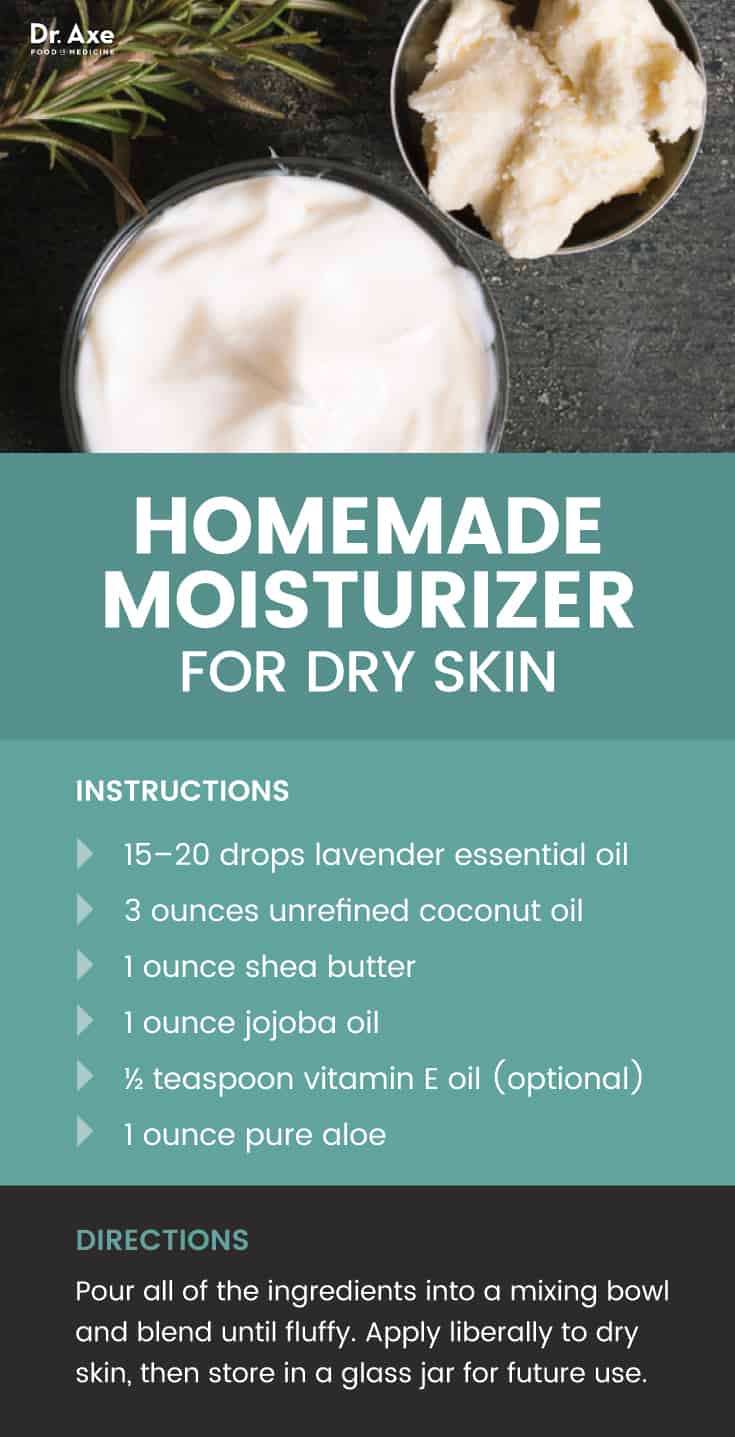
4. Apply Anti-itch Creams or Natural Soothing Products
- In a bath (using lukewarm water) add a small amount of baking soda, uncooked oatmeal or colloidal oatmeal, or lavender oil.
- Use essential oils (which are also helpful for reducing allergies) including lavender, tea tree, peppermint, basil, eucalyptus and lemon. Add 2–3 drops of oil to a cotton ball. Rub coconut oil over your skin, then apply the essential oil to the affected area.
- Apply calamine lotion (with up to 1 percent menthol) to your skin if you have bug bites, poison ivy/oak/sumac, or a rash.
Dermatologists often recommend using nonprescription hydrocortisone cream (containing at least 1 percent hydrocortisone) short-term on itchy skin. Topical anesthetics, such as pramoxine, and creams that contain capsaicin might also be helpful. If you have allergies and your skin is flaring up, you can try an over-the-counter (OTC) allergy medication such as diphenhydramine (Benadryl) temporarily, which is also helpful for helping you to sleep if itching keeps you up.
5. Reduce Allergies & Strengthen Your Immune System
Ways that you can help reduce exposure to allergens and boost your overall immunity include:
- Eating a healthy diet — Try reducing or avoiding common food allergy culprits including gluten, dairy, peanuts, shellfish, and possibly eggs or nightshade vegetables. Eat lots of anti-inflammatory foods including:
- leafy green veggies
- orange or yellow veggies and fruits
- wild-caught fish and other clean proteins
- probiotic foods
- healthy fats like avocado or olive oil, and chia and flax seeds
- Some people with certain health conditions may also benefit from eating a low protein diet.
- Reducing stress — Stress can be a trigger for autoimmune reactions and may make itching worse. To manage stress, try natural stress relievers like exercise, CBT counseling, prayer or meditation, yoga and getting support from a group or family and friends. Also be sure to get enough sleep and find time to slow down, relax and unwind each day.
- Getting enough exercise and sleep.
- Quitting smoking and avoiding high consumption of alcohol.
- Changing medications or dosages if they cause negative reactions.
- Taking supplements including adaptogen herbs, probiotics, omega-3s and a multivitamin.
Precautions Regarding Pruritus (Itchy Skin)
Because there are so many different reasons why your skin might be itchy, many of which are not that serious and will usually go away on their own, it’s important to keep an eye on your symptoms and get help from a doctor if needed. It’s recommended that you visit a doctor — specifically a dermatologist who specializes in skin conditions — if you experience any of the following symptoms along with skin itchiness:
- Intense itching that lasts more than two or three weeks, especially if it starts suddenly and cannot be attributed to any cause or reason.
- Severely itchy and inflamed skin that is very distracting and interferes with work, school or other daily activities.
- Severe itching that affects your whole body and covers a large portion of your skin.
- Extreme fatigue/tiredness, weight loss, changes in digestion or bowel habits, increased urination or thirst, or fever.
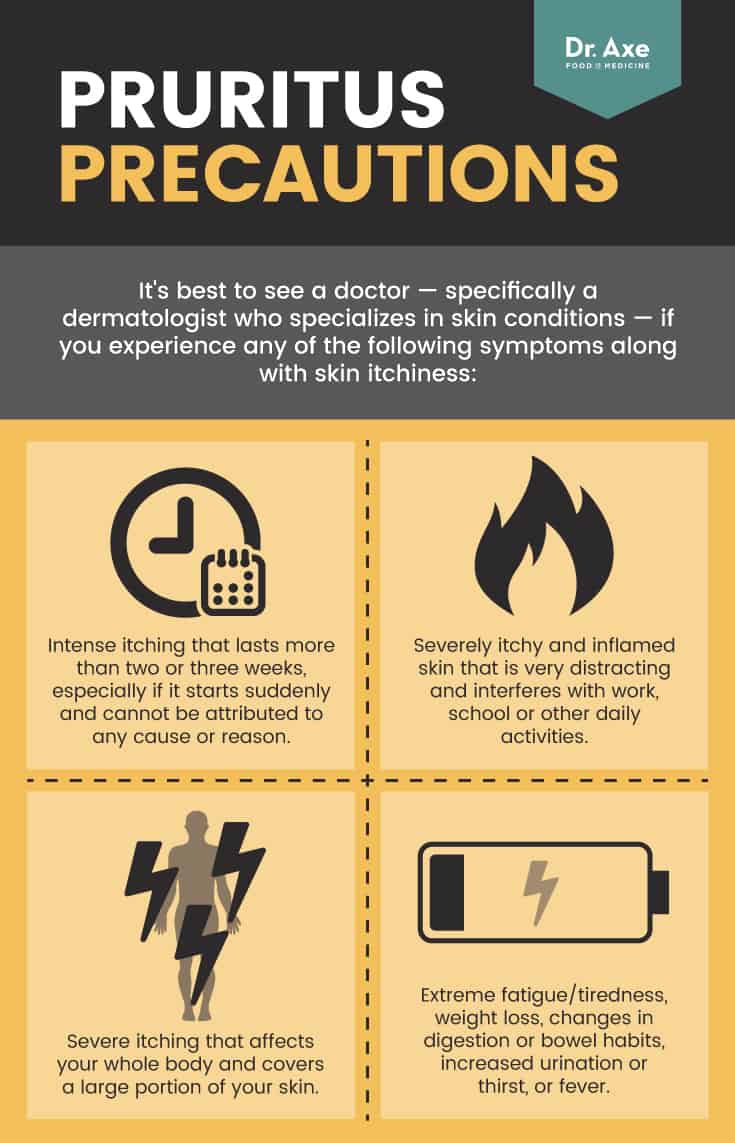
Pruritus Key Points
- Pruritus is the name for intense skin itchiness, which can be caused by many health problems including: allergies, viruses like chicken pox, rashes, irritation from beauty products or cleansers, harsh climates, sun burns, liver disease, renal failure, diabetes, thyroid disorders, and many others.
- In addition to intense itchiness, pruritus might also be associated with symptoms like dryness, redness, swelling, edema, blisters, bumps, warts, scabs and scarring.
5 Natural Treatments for Pruritus
- Break the itch-scratch cycle
- Removing triggers, irritants and allergens
- Keep skin cool and moist with moisturizers and essential oils
- Apply anti-itch or natural soothing products
- Reduce allergens and strengthen your immune system

